Major iPhone update finally lets you manage legacy Wi-Fi networks and even view their passwords
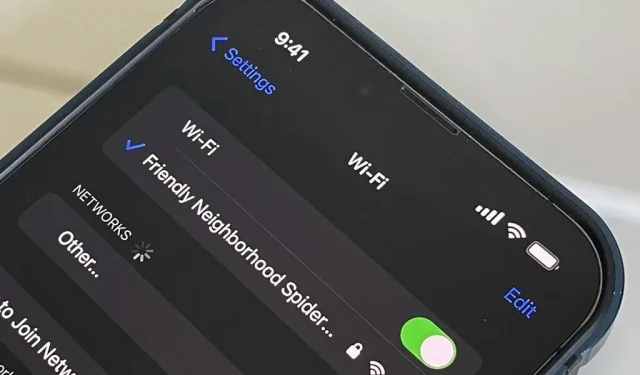
For years, Android has provided easy ways to view all the Wi-Fi networks you’ve connected to in the past, and you can even see saved passwords in plain text. With iOS 16, Apple finally gave us a similar way to view saved Wi-Fi hotspots, copy their passwords, and delete old ones without being near their hotspots.
To manage the new Wi-Fi settings on your iPhone, you’ll need iOS 16. This change also appears in iPadOS 16 for iPad, which is still in beta.
1. View networks you have previously connected to
In iOS 16, Apple lets you view all the Wi-Fi networks your iPhone has connected to and remembered. If iCloud Keychain is enabled on all your Apple devices, you can even see the Wi-Fi networks saved on those other devices. For example, you can use your iPhone to see all the networks saved by your Mac or iPad.
Prior to iOS 16, you could use Keychain Access on your Mac to find some networks from your iPhone if Keychain was enabled for iCloud on all devices. Now you can view all past iOS networks saved right on your iPhone.
To see all saved networks, go to Settings -> Wi-Fi -> Edit. Then sign in with Face ID, Touch ID, or a passcode to gain access. All memorized Wi-Fi hotspots will be in the “Known networks”section.
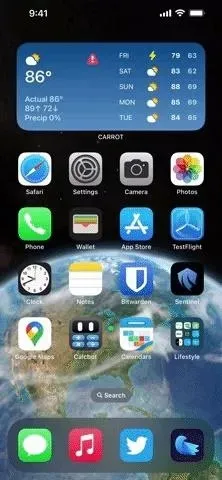
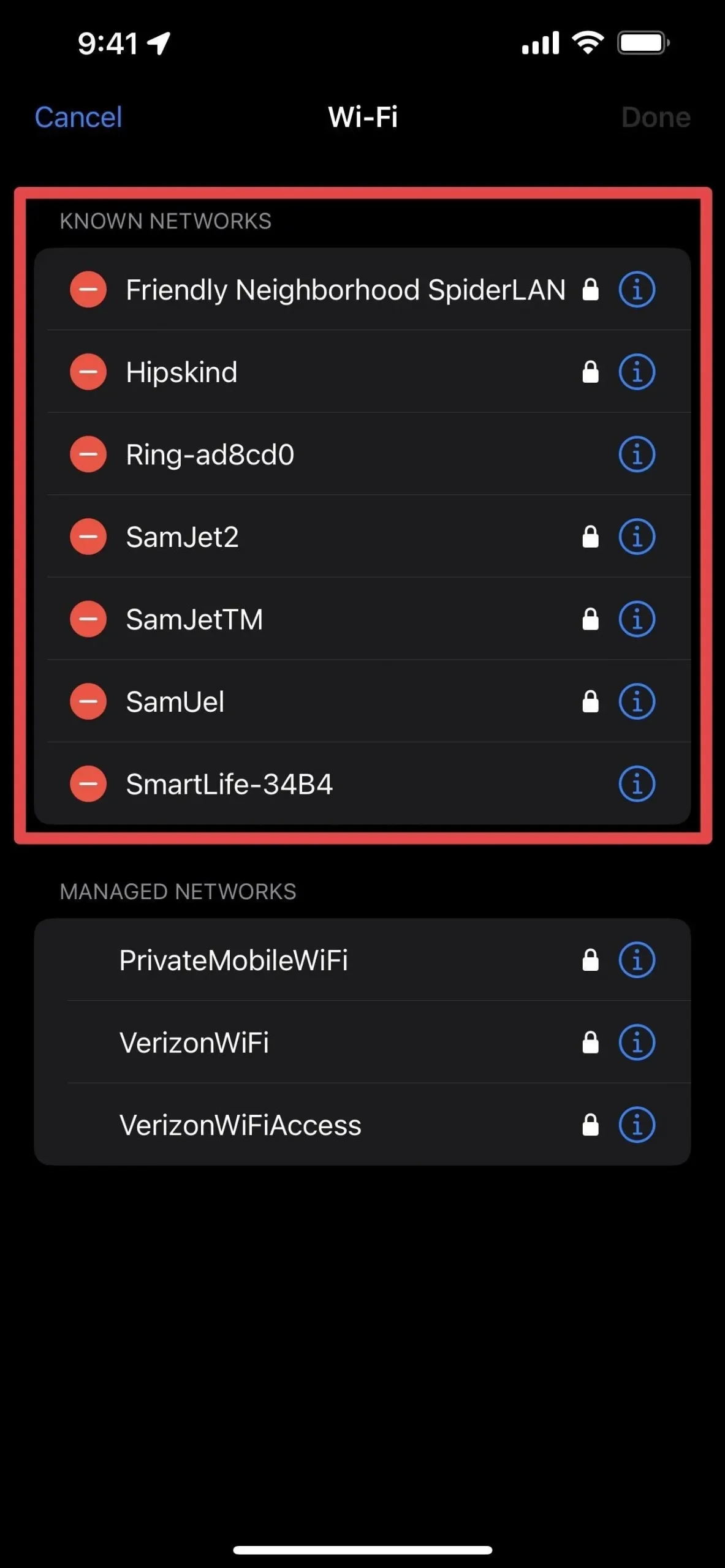
2. Remove networks you have previously connected to
You can also remove any known Wi-Fi hotspot without being near or connecting to it. For example, if you were on vacation and were using Wi-Fi at a hotel, you can view and delete that network from your iPhone so that it doesn’t automatically try to connect to it in the future. Passwords are likely to be different anyway.
In iOS 15 and earlier, you can remove a Wi-Fi network from your iPhone by viewing the information (i) for it in your Wi-Fi settings and choosing “Forget This Network”. You can still do this in iOS 16, but like older versions of the software, you must be near a network to see it in your settings.
You can reset network settings via Settings -> General -> Transfer or Reset -> Reset to delete all networks and start over, but this is overkill if you only want to delete one network. In addition, it interferes with other settings such as your iPhone’s name, manual trusted certificates, roaming, and any established VPNs. You can also access and remove networks from your iCloud Keychain using your Mac, but you may not find every network.
That’s why the new Edit menu for Wi-Fi settings is so great. When viewing the Wi-Fi editing options, click the minus icon next to the network you want to delete, then click Delete and then Done.
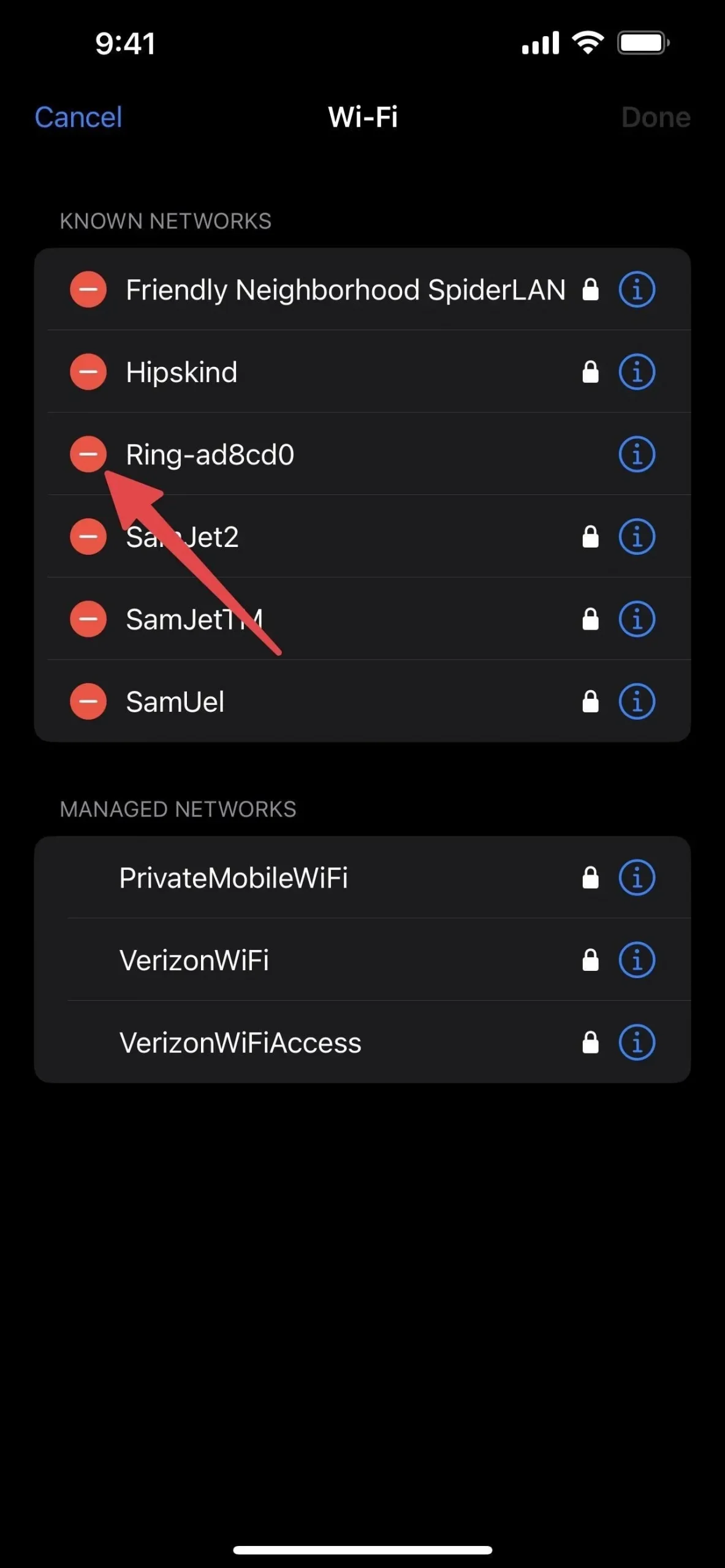
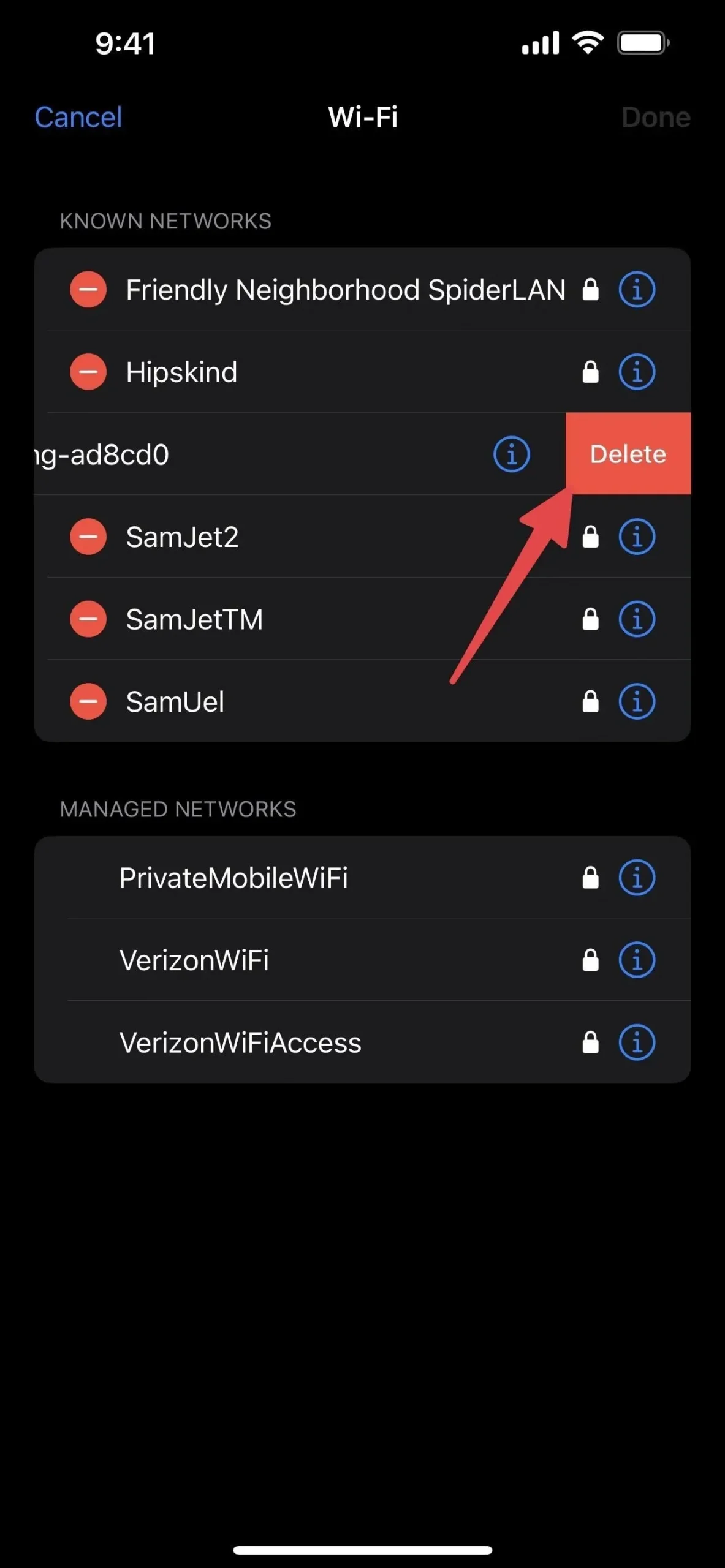
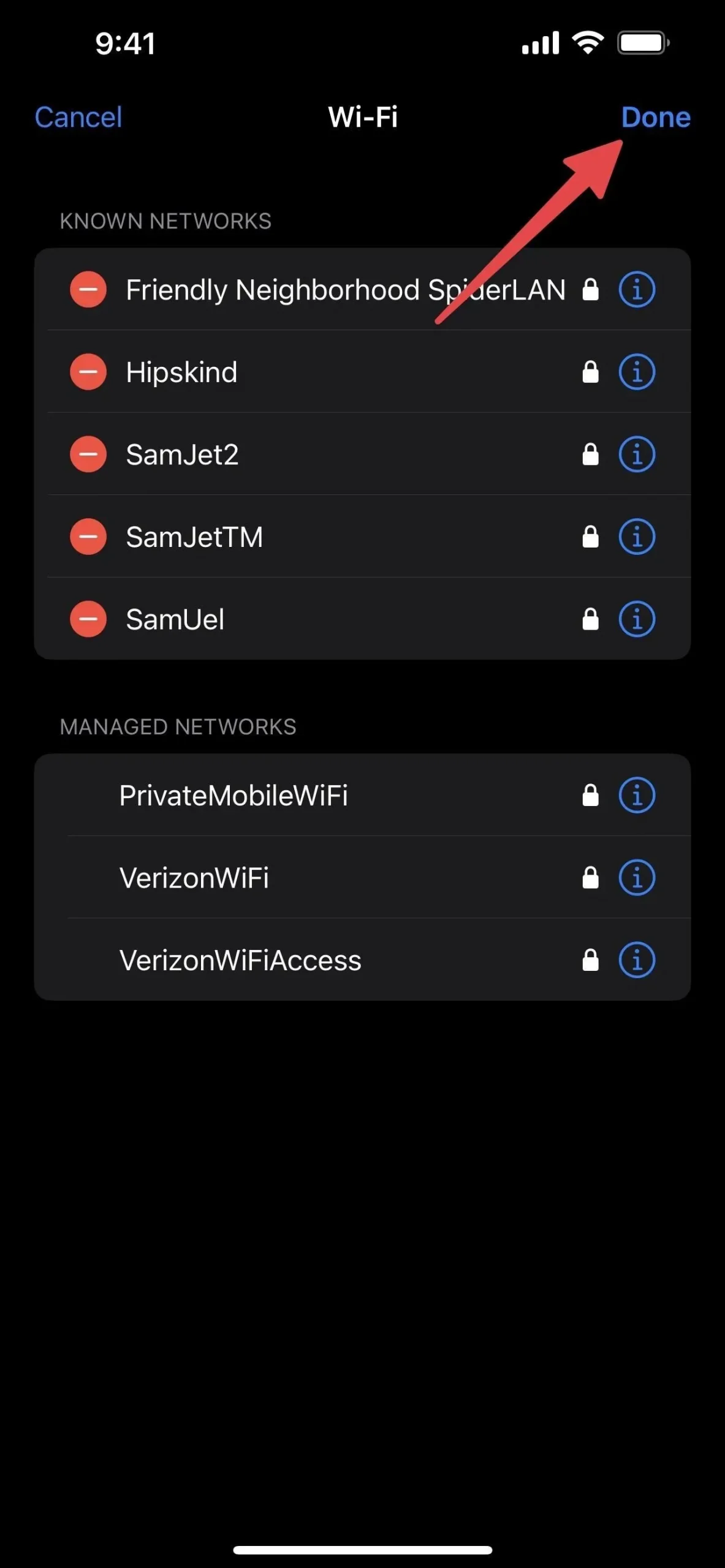
If you have iCloud Keychain enabled on all of your iCloud connected devices, you will be prompted to confirm the deletion as it will forget the network on all devices. Click “Delete”to confirm.
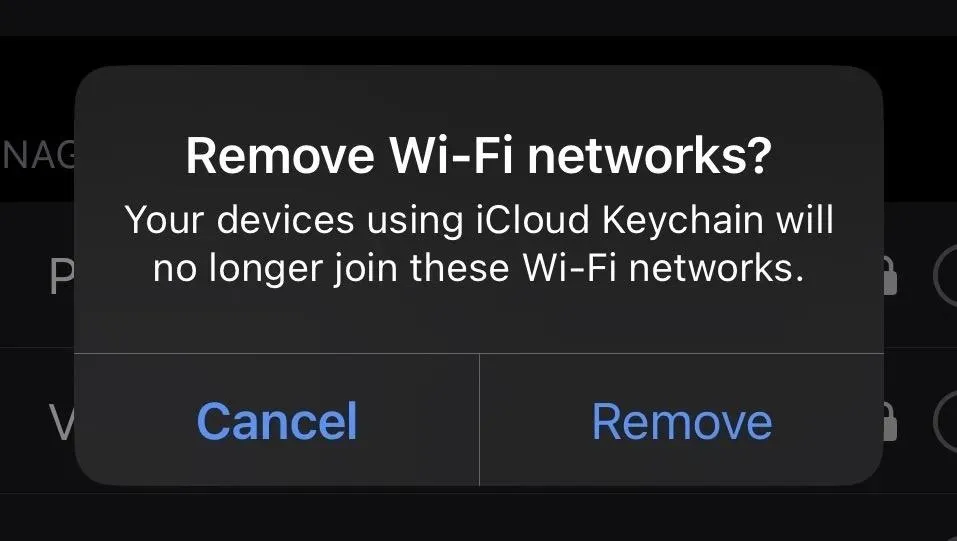
3. View and copy passwords for the current Wi-Fi network
Another great Wi-Fi feature in iOS 16 is the ability to view and copy the password of the Wi-Fi network you’re currently on or any network on your list of known networks. If you have iCloud Keychain enabled, you can also view and copy passwords from any of your devices.
Prior to iOS 16, you could see and copy Wi-Fi passwords from a Mac to Keychain Access, but the only thing you could do on your iPhone was instantly share your current network password with friends and family near you without seeing it in plain text.
Go to Settings -> Wi-Fi, tap the info button (i) next to the network you’re connected to, then tap the new “Password”field, which dims the characters with dots. Your iPhone will authenticate you with Face ID, Touch ID, or your passcode, revealing the passcode in plain text. When the password opens, a “Copy”option will also appear so you can copy the password to your clipboard.
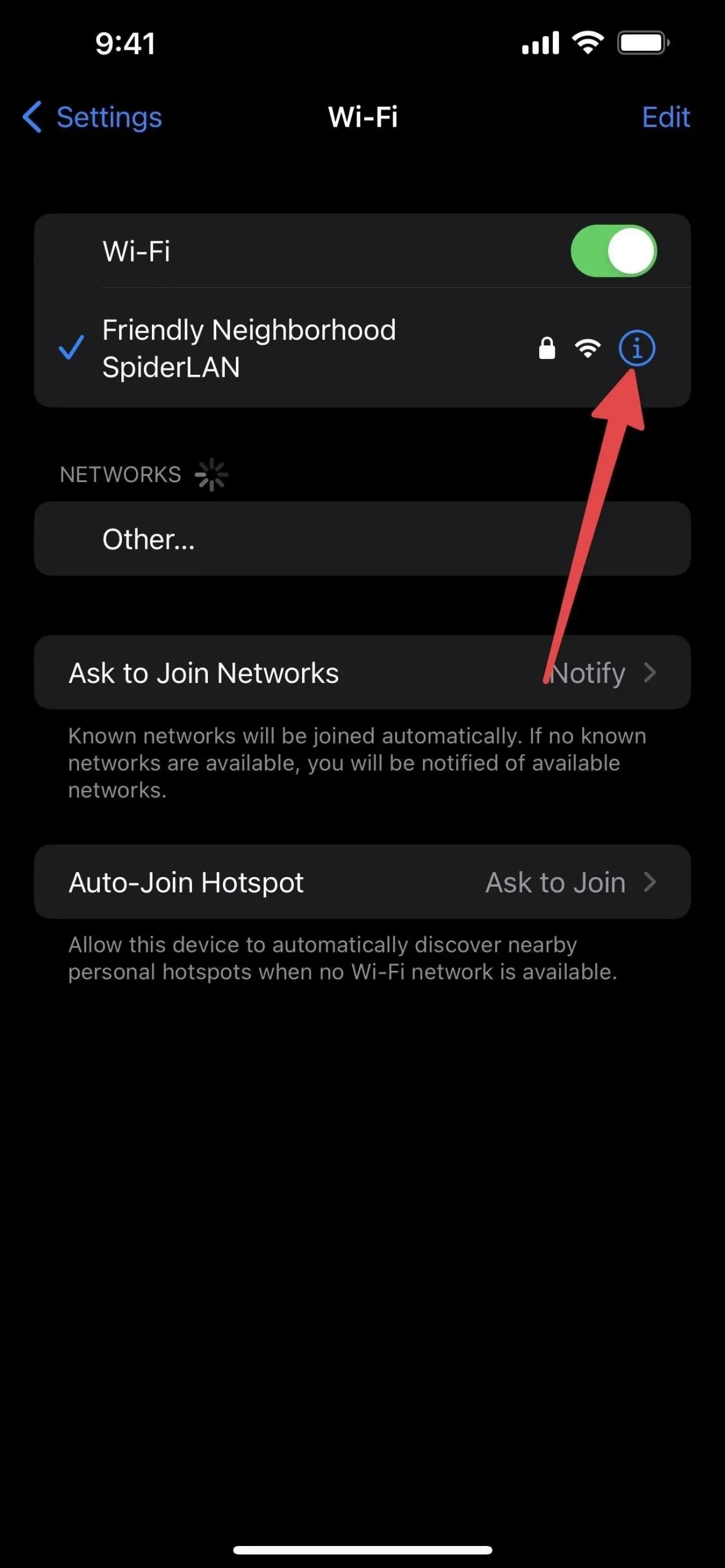
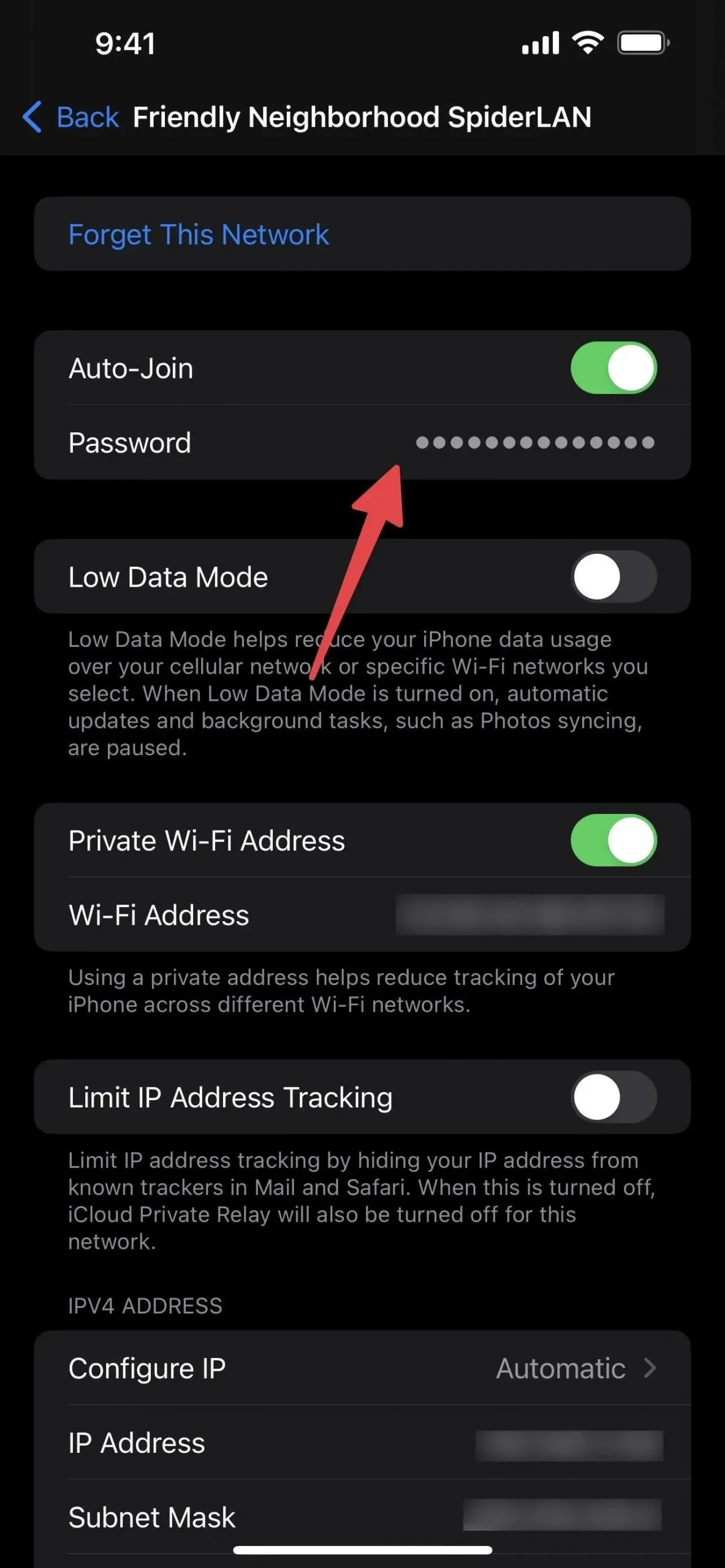
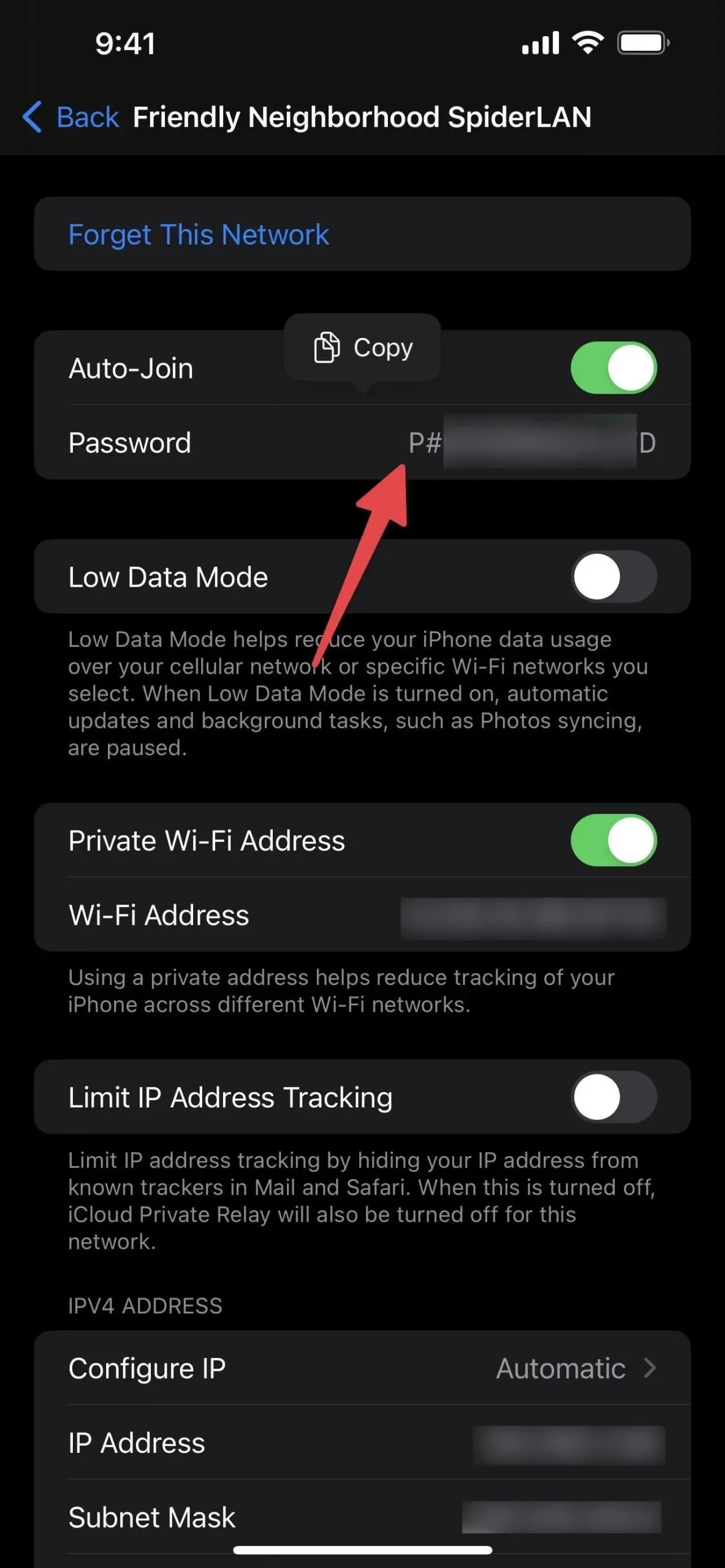
4. View and copy passwords for saved Wi-Fi networks
The process for saved networks is the same as for the currently connected one, only you have to be in the Wi-Fi Edit menu to find all known Wi-Fi networks. If you don’t see the “Password”field for the hotspot, the network is probably not secure and does not require a password to connect.
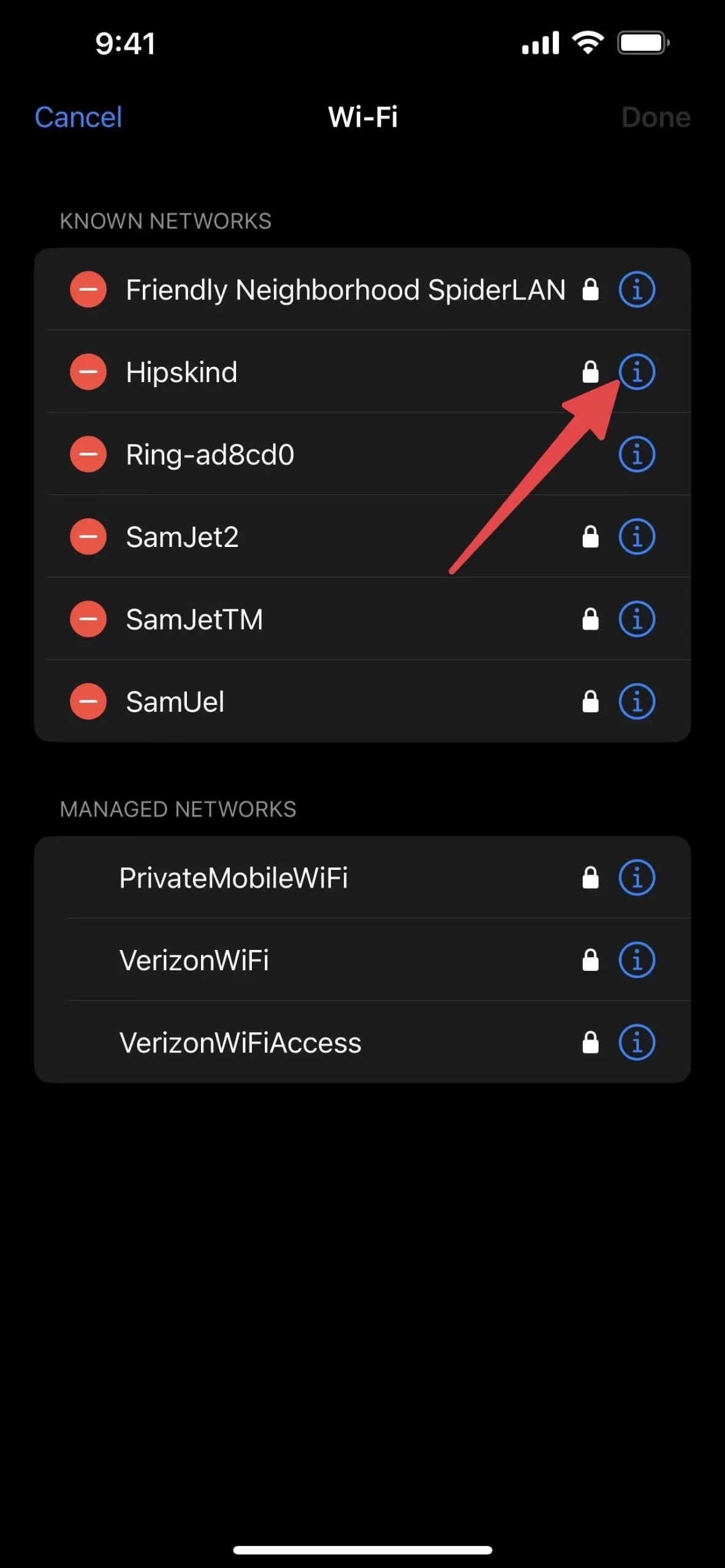
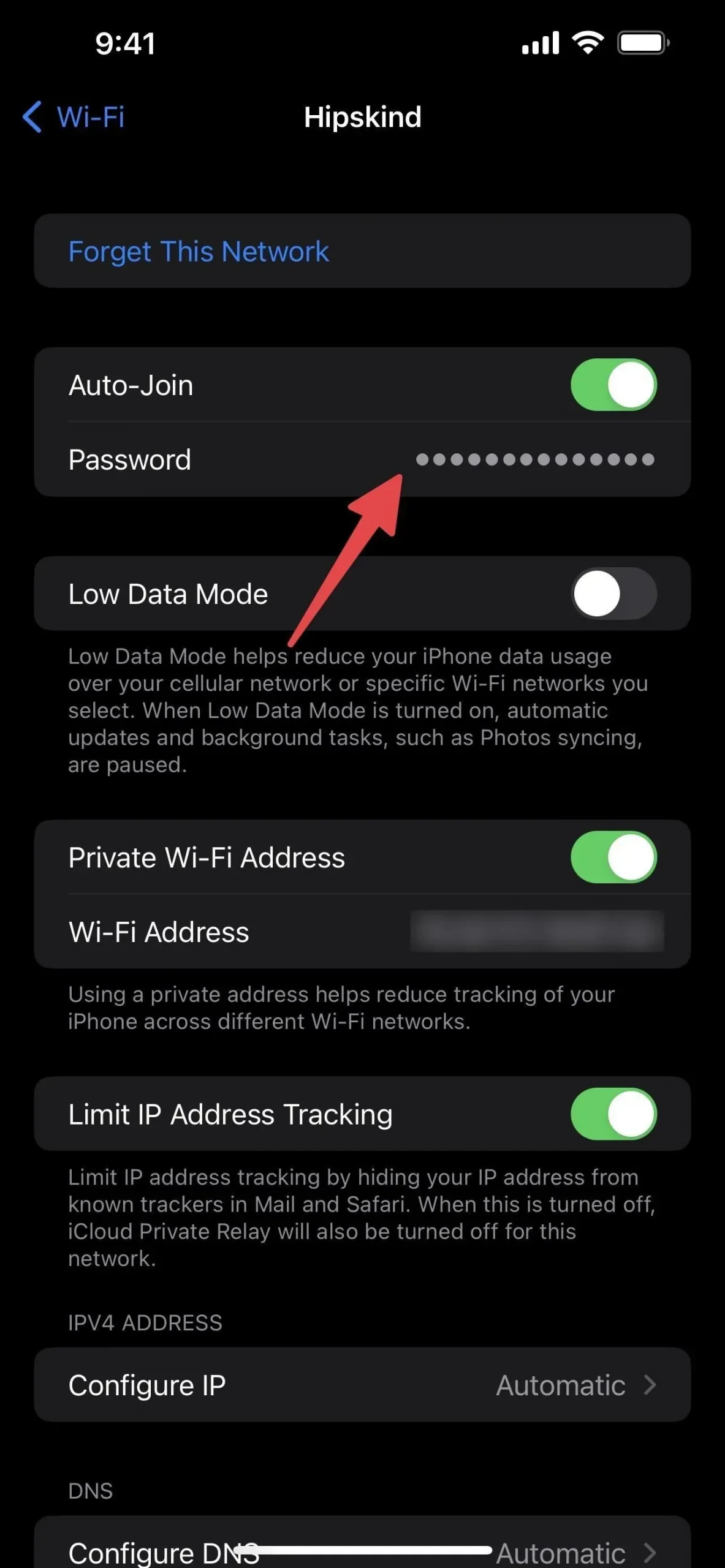
5. View managed networks from your carrier
You will also see Managed networks in the Wi-Fi settings editor. These networks have been automatically added to your device through your carrier or configuration profile, and you cannot remove or forget them in the Edit settings.
For example, if you’re on Verizon, you might see VerizonWiFiAccess and PrivateMobileWiFi. On AT&T you can see attwifi and AT&T Wi-Fi Passport. These are access points that carriers use to offload traffic from their cellular network.
Unlike known networks, you cannot delete/forget them or view passwords.
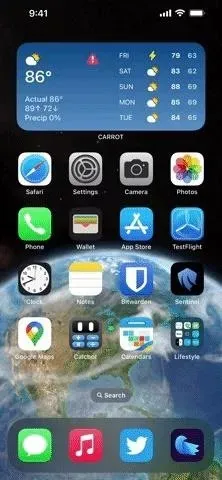
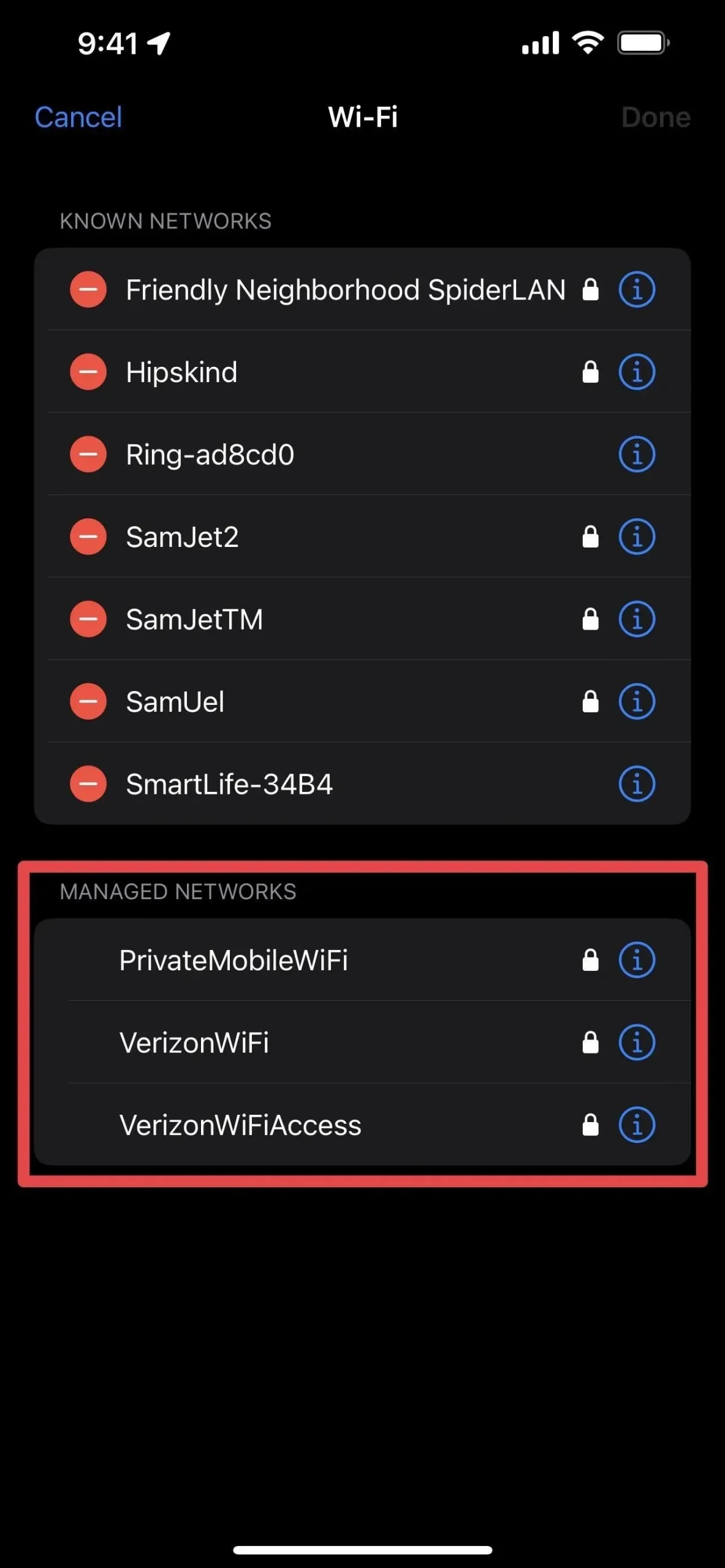
Leave a Reply